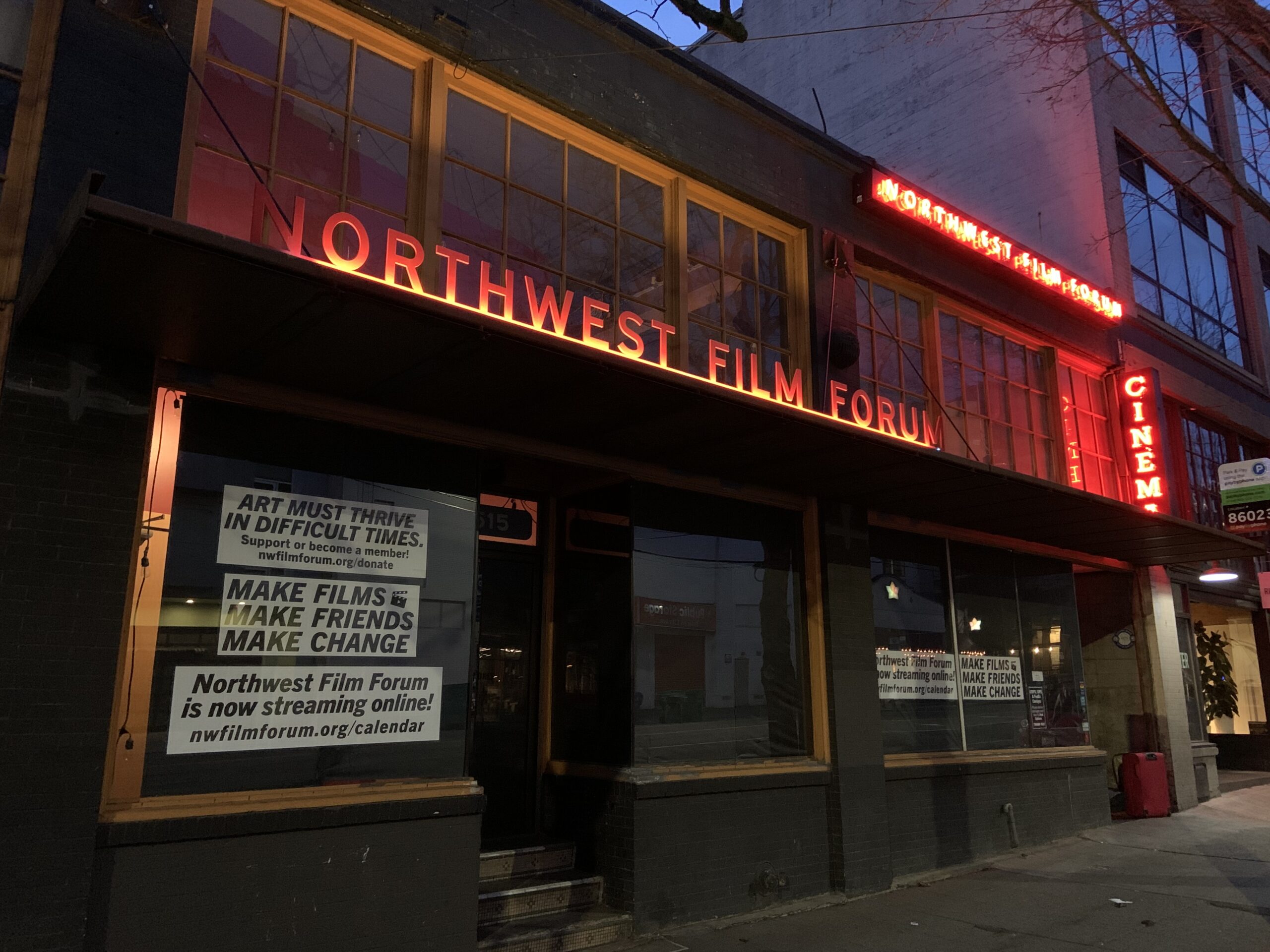By Bailey Pennick
There’s something special about the Capitol Hill space in which Northwest Film Forum operates in Seattle, Washington. “It’s like this old auto row building. They used to sell cars in it. The ceilings are extremely high, it’s all wood floors, and it’s very old,” says Vivian Hua, the Executive Director of the nonprofit film and arts center. You can hear their warmth and appreciation of this safe space even through the phone.
“It’s just a vibe of space that, especially in places like Seattle where there’s a lot of ugly new construction, there’s not very many places that are like Northwest Film Forum anymore,” they continue. It’s true that the space itself is special, but the true magic of NWFF is its passionate community who have supported the center for nearly 27 years. Hua, who has been NWFF’s Executive Director since 2018, has been part of the arts community as a filmmaker in their own right for much longer.
“I am the organization’s first executive director who is a person of color, and I also identify as non-binary.” Hua says, recalling the sea change at NWFF in 2018. “Between those things…and our artistic director being promoted to her role at that time — she’s a woman of color — really created this message to the community at large that made a lot of people who previously hadn’t necessarily felt welcome in the space, feel like it was a space for them.”
Representation and utilizing its platform for social justice has been a guiding principle for NWFF, whose mission statement says that NWFF “incites public dialogue and creative action through collective cinematic experiences.” The theater, which is one of Sundance Film Festival’s seven Satellite Screen partners this year, has seen a shift in what its audiences want to watch (“They like serious things that make you cry.”) and to engage with.
“It’s also a very sort of radical community space,” says Hua. “I think during my tenure, and prior to that a bit, we’ve really been able to establish ourselves as an organization that stands up for our values around racial and social justice in a way that’s very explicit.”
In the summer of 2020 these values were put to the test in a real way during the Black Lives Matter protests in Seattle. “We didn’t have a choice to not very vocally stand up for Black Lives Matter because we were literally within the protest zone — and we are also housed next door to the police,” Hua recalls.
“We opened our doors shortly after the barricades were removed — that kept people from being out of our space — and opened [NWFF] up to citizen journalists and let people recharge their batteries there and rest when needed. We also helped document livestream protests just because we knew that a lot of them got taken down without warning and we wanted to preserve that history. So, I think we saw, in that moment, a very important need for our organization to actually play an active role and to be vocal about it.”
Through its diverse programming and commitment to community workshops and more, NWFF continues to redefine what it means to support a city as an independent theater. When asked about their favorite part about the Forum, Hua pauses and reaffirms her belief in the theater as a community center. “In the lobby, there will be a mingling of various groups of people who otherwise, maybe wouldn’t really intersect. But because of the films, bringing them to the space, it creates this interesting dynamic where you’re creating new experiences for people often.”

